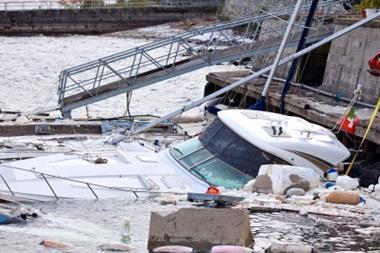Extreme weather is having an impact on businesses but few record the impact or measure the costs arising from a weather-related incident

While many London businesses believe that the changing climate is already having an impact on their operations, few are quantifying the financial costs associated with climate change and, as a result, are failing to adequately invest in suitable risk mitigation strategies, according to new research published today by Marsh and Base London.
The joint report, Resiliency: Adapting to Extreme Weather Events and a Changing Climate, benchmarks opinion among infrastructure and real estate firms and Base London members.
It found that nearly two-thirds (62%) of respondents believe that extreme weather events are already having an impact on their businesses. Furthermore, 86% believe that the impact of the changing climate is already, or will be, materially felt by their organisations in the next decade.
Despite this widespread acceptance that the climate is changing, 84% of respondents stated that their firms currently do not record the impact or measure the costs associated with climate change. In addition, 38.8% believe that a tangible return on investment would first be required before their firms would further invest in resilience strategies relating to climate change.
Dr Cliff Warman, environmental practice leader, Europe, Middle East and Africa, Marsh, commented: “Extreme weather is no longer a ‘black swan’ event, or a once in a generation phenomenon; last winter’s storms in the UK, which resulted in more than £400 million in flood claims, serve as a stark reminder of the direct impact changing weather patterns are having on our society and businesses.
“While more London businesses accept that the climate is changing, it is worrying that so few are investing in appropriate measures such as resilient building or robust supply chain strategies to protect themselves from the risks associated with extreme weather. Those organisations that are perceived to have a low resistance to severe weather events will become increasingly uninsurable in the future.”
Marsh and Base London’s research also found that firms are under-utilising insurance products which can be used to enhance resiliency. Only 5.9% of respondents state that they have a resilient repairs clause on their property insurance policy, which allows for more robust reinstatement of a property after a loss; and nearly three quarters (72.5%) do not know if such a clause is in place.
Andrew Dowding, managing director, Base London, commented: “It’s clear that commercial property owners, landlords and tenants need to get a better handle on the changing urban risk landscape. For instance, failure to make contingencies or to prepare for extreme climate events could have very severe, disruptive and costly consequences for everyone. We all have to recognise that this agenda is as relevant to business owners who want to save their businesses as it is about campaigners who want to save the world.”




















No comments yet